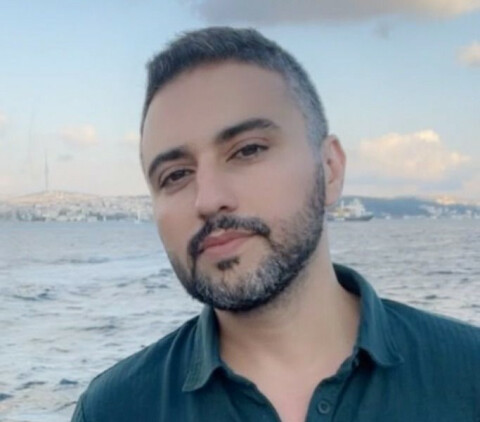
September 2nd 2022
Chance for a bright future
Refugees who settle in the Netherlands are eager to get started with their craftsmanship. In 2019, Achmea IT started an intake process for professionals with a refugee background. Read the story of Ahmad Sukkari from Syria, who was offered a contract with IT Security.
Please note: this article was translated using a translator appAhmad left Syria in 2017 and now lives with his family in Amstelveen. “The Netherlands is good for us, security in Syria is very bad. I left my family and everything there. That's difficult, but we had no other choice. So we're building our lives here now. My child is growing up here, he speaks and writes Dutch and almost no Arabic. That's why I applied for Dutch nationality and luckily I got it!”
Intake process for refugees at Achmea
Ahmad was taking a Dutch course in Amsterdam when he read a call on LinkedIn for Achmea's IT Security training program. Ahmad: “IT security has many possibilities in the future and offers many opportunities. That's why I responded to the call. I was then invited by Achmea for an introductory meeting in Apeldoorn. Quite exciting, I didn't have enough experience with Dutch culture and I didn't speak Dutch well yet. Fortunately, Achmea had arranged a translator. After the interview I applied and about 2 weeks later there was an extensive application day. I found it difficult, but it turned out well in the end, thankfully!”
Ahmad started the process, which lasts 1 year. “I had to learn all kinds of things about security. But honestly, it wasn't that hard. I had training and a job in ICT in Syria, but not in ICT security. I was allowed to take a course at IT Security to learn more. In addition, I was also able to learn more Dutch through my colleagues while working.” Working and learning yielded good results: Ahmad was offered an extension at the end of the year, with the intention of converting this to an indefinite contract!
The differences
Ahmad: “There is a big difference between the working environment in the Netherlands and in my country. I like it better here than in Syria. You must already have good work experiences there to get a job and during the first three months you have to figure out and learn everything yourself. Things were very different at Achmea, in the first week I got access to a knowledge portal where I could find a lot of information.”
If you work in Syria for a company, you are directly responsible for your task. Here the responsibility often lies with the entire department and not just with yourself. Collaboration is therefore essential. Ahmad had to get used to that: “In my country we don't have cooperation, but here it is actually important. At Achmea you can consult with colleagues and also ask for a solution. I found that really difficult in the beginning, also because of my Dutch language level. I did have a buddy who helped me with all the questions I had and fortunately I also received support from my other colleagues. Step by step I learned how IT Security works and how the culture in the Netherlands and at Achmea works.”
Dutch culture
“When we were at the office, before the corona situation, I used the breaks to talk about Dutch culture, to understand it better. Dutch culture is very difficult, so different! Every day I walked around with a colleague to talk about it. If I wanted to do something, I asked what they thought about it. Conversely, colleagues asked me whether they should tell me if I did something wrong. Whether it wasn't too much for me. But I really wanted that, because there was a lot I didn't know yet and I wanted to understand everything. That's why I don't find it difficult anymore at the moment.”
Newcomer trajectory
Ahmad: “Achmea is now working with the Refugee Talent Hub. I am very happy with that. Refugees are normal people who, like me, want to work. We do have a small problem with language and culture, but we have also had good training and can work in different environments. We would like to have the chance for a good future. I would be happy to help with the next project with refugees!”